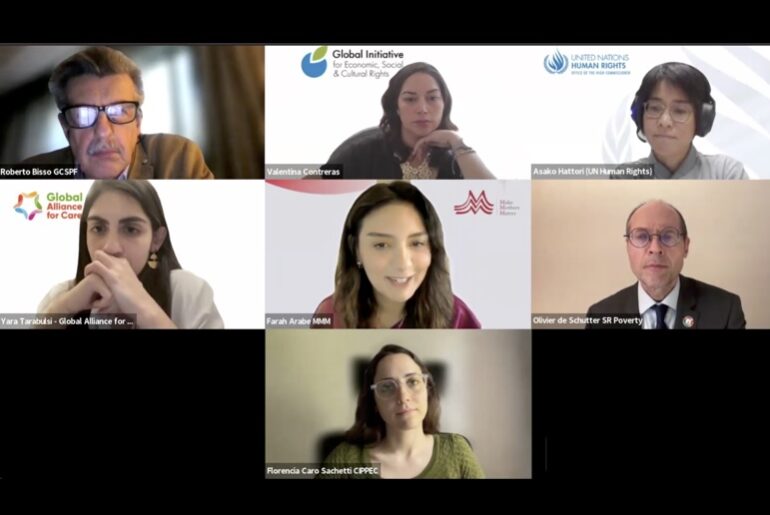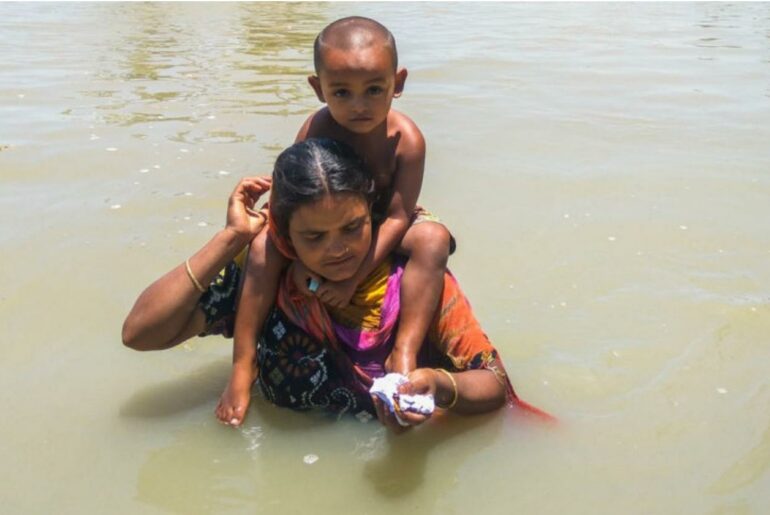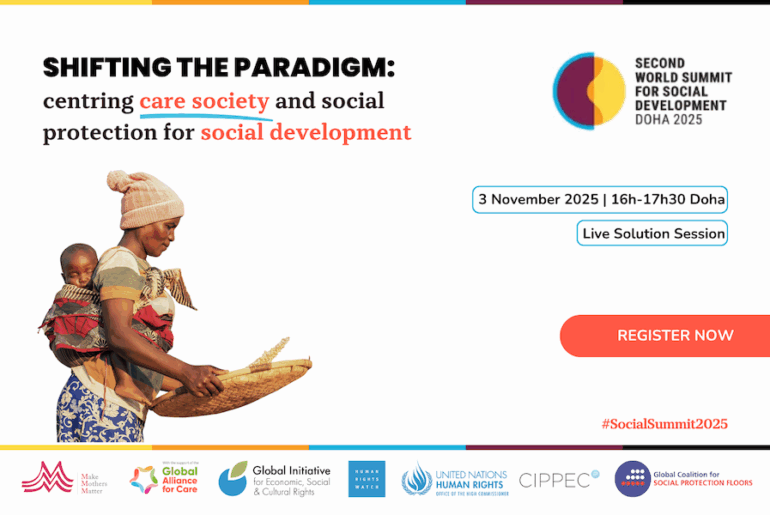Businesses must address the motherhood penalty and its root cause – the imbalance of unpaid care work
30.06.19
UN Geneva, Human Rights Council - In an oral Statement to the council, MMM also called businesses to promote a more equitable sharing of unpaid family care responsibilities and work between women and men, but also between society and families.
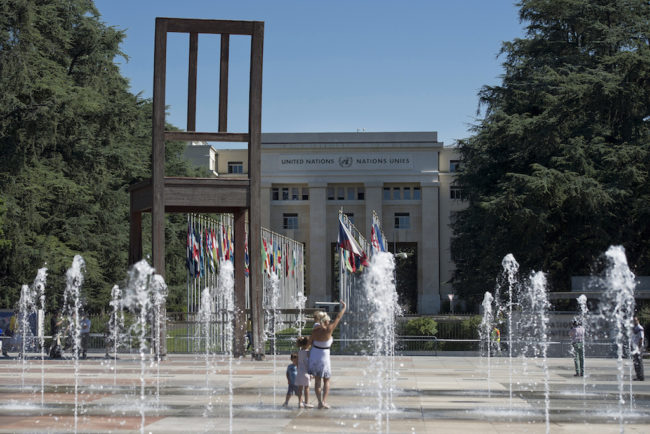
Despite existing non-discrimination provisions in the laws of many countries, women continue to experience many forms of discrimination and human rights violations in the context of business-related activities.
The new “gender guidance” elaborated by the Working Group on Business and Human Rights in a report on the gender dimension of the UN Guiding Principles on Business and Human Rights was the object of a recent discussion at the 41st session of Human Rights Council at the UN in Geneva.
MMM seized this opportunity to draw attention to the “motherhood penalty” – i.e. the specific obstacles and discriminations women face in relation to maternity. These include
- obstacles to access the labour market,
- discrimination in hiring and promotion,
- maternity-related stigmatization,
- harassment and even unjustified dismissal,
- and a gender pay-gap which is higher for mothers than for women without children and which increases with the number of children.
We are pleased that the proposed gender guidance will tackle some of these specific discriminations faced by mothers and pregnant women. We can only endorse the calls to reduce the gender wage gap, the provisions to support women’s reproductive rights, and the recommendations that businesses enable more work-family balance.
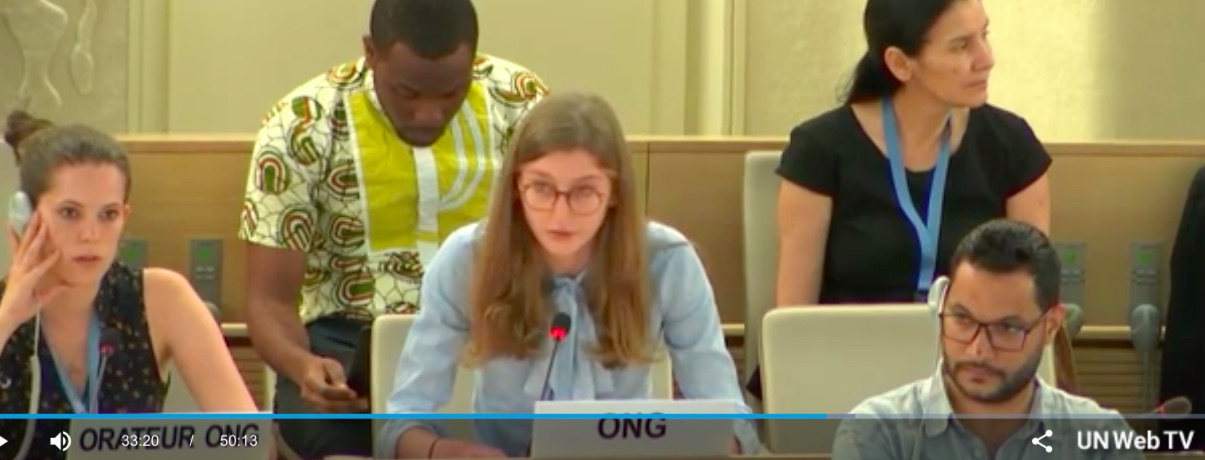
Chiara Dedeken delivered the Statement on behalf of MMM
However, in our view, the gender guidance falls short of making recommendations to address the main obstacle to substantive Gender Equality – that is, the inequitable distribution of unpaid family care work.
MMM is calling for more systemic changes. We are calling for businesses and government policies that promote and support a more equal sharing of the essential work of caring, nurturing and educating the next generation – not only between men and women, but also between families and society. In the long term, everyone benefits.
Read the full statement
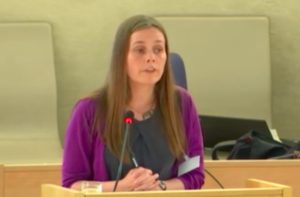
Katrín Jakobsdóttir, Prime Minister of Iceland addressed the Human Rights Council on 27 June 2019
Just before, the Human Rights Council had heard Katrín Jakobsdóttir, the Prime Minister of Iceland, who is a young mother of 3. Iceland is a country which consistently ranks first in many indexes on Gender Equality. It is also the first country which since 2018 puts the responsibility of eliminating the gender pay gap on the employer – not the employee. Yet, Ms. Jakobsdóttir acknowledged that substantive gender equality will only become a reality when the issue of women’s unpaid care work is addressed. A more balanced sharing of unpaid care work between men and women must be promoted. 90% of men now take their 3 months reserved share of parental leave and this has already changed behaviours and traditional ideas around masculinity.
“An underrecognized factor is unpaid care work and domestic work, which is unfairly distributed in households. Addressing the imbalance is important, not only to achieve more substantive equality but also it reinforces a negative chain reaction. Imbalances of responsibilities in the homes have consequences on women’s participation in public life as well as their professional development and their ability to take on full-time work.”
The New EU Gender Equality Roadmap : A Call for Inclusion of Mothers
04.03.25
The European Commission’s initiative on a new Gender Equality Roadmap post-2025, marks a significant step forward in addressing gender disparities across the European Union. Make Mothers Matter (MMM
Breaking the Cycle: Gender Equality as a Path to Better Mental Health
18.03.25
The Council of the European Union has taken a decisive step in recognising the vital connection between gender equality and mental health.
Europe Must Listen to Mothers: Our landmark report heads to the European Parliament
28.08.25
On 22 September 2025, the voices of mothers will take centre stage in Brussels. For the first time, Make Mothers Matter (MMM) will present its State of Motherhood in Europe





